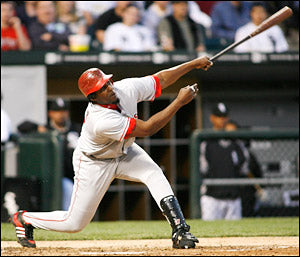It plays a significant role in how you communicate with your opponents, teammates, college coaches, and fans in the stands.
Here are four ideas why negative body language can be detrimental to your success as a player.
Your teammates will think you are selfish
Baseball is a individual game played within a team structure, and it's crucial to support and rely on one another.
Negative body language, like throwing your hands up in frustration after a teammate's mistake or sulking when things don't go your way, can make your teammates feel like you're only concerned about yourself.
This can lead to a lack of trust, hindering our ability to work together effectively.
College Coaches will think you can't handle adversity
College coaches are constantly evaluating not just your physical skills but also your mental and emotional resilience.
When you display negative body language, it suggests that you struggle to handle adversity and high-pressure situations.
Baseball is a sport filled with ups and downs, and coaches want players who can stay cool under pressure and bounce back from setbacks.
Your body language can either attract or deter coaches from offering you opportunities
Your opponents will think they have the upper hand
When you exhibit negative body language, such as slumping shoulders, a defeated posture, or visible frustration, it sends a clear signal to your opponents that you are not in control or confident.
They can use this to their advantage, capitalizing on your vulnerability.
Confidence in baseball is a powerful weapon, and displaying negativity can hand it over to the other team.
You give fans the wrong impression of your character
Remember that when you step onto the field, you're not just playing for yourself and your team; you're also representing your community and the sport of baseball as a whole.
Negative body language can create a negative impression on random parents/fans in the stands.
People watching the game might form opinions about your character based on how you handle adversity and interact with your teammates.
It's essential to leave a positive impression both as an athlete and as a person
Conclusion
In review, body language plays a significant role in the perception of you as a player
By displaying poor body language:
- Your teammates will think you are selfish
- College Coaches will think you can't handle adversity
- Your opponents will think they have the upper hand
- You give fans the wrong impression of your character








